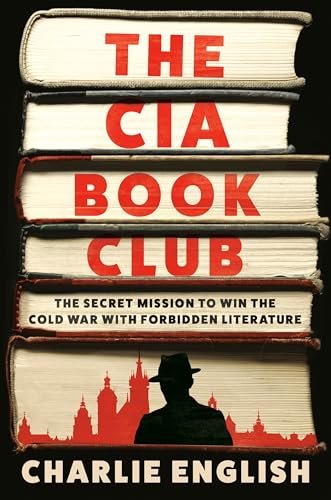
Book Review of The CIA Book Club: The Secret Mission to Win the Cold W…
A Reflection on Power and Resistance: My Thoughts on The CIA Book Club: The Secret Mission to Win the Cold War
Why, oh why, did my post about reading The CIA Book Club: The Secret Mission to Win the Cold War by Anya von Bremzen get such a paltry two likes? It’s baffling! I mean, it’s a book about books—could it get any more compelling? While my recent enthusiasm for other titles garnered a flood of appreciation, this one seems to have slipped past the radar. Am I alone in believing that literature has the power to illuminate, challenge, and inspire? Or is it simply the shadow cast by the CIA’s notorious reputation that keeps readers at bay? Let’s dive into why this book deserves your attention.
At its core, The CIA Book Club is a fascinating exploration of the clandestine world of literature during the Cold War. It chronicles the covert efforts of the CIA to penetrate the Iron Curtain with literature deemed too dangerous by socialist regimes. The author skillfully reveals how books like Orwell’s 1984 and Solzhenitsyn’s The Gulag Archipelago were not just novels but weapons in an ideological battle—a notion both thrilling and chilling. For someone like me, who has often questioned the role of narratives in shaping realities, this book was a revelation.
What really struck me was the focus on the Polish Solidarity movement, illustrating how American literary assistance—books, printing presses, and money—provided crucial support to dissidents. The narrative encompasses everything from the underground printing efforts to the eerie atmosphere of political repression in 1980s Poland. The writing is punctuated by a series of interviews, revealing voices that carry the weight of their experiences—though I did feel the narrative sometimes faltered under the limitations of remaining classified documents. I would love to access those documents; I suspect they might reshape this historical narrative entirely.
On a personal note, the juxtaposition of historical events with contemporary reflections struck a chord in me. As a member of a younger generation that often feels disconnected from these pivotal moments, I was astonished to learn that many of my contemporaries have little to no idea of what Solidarity represents. Are we losing lessons from our history, or is it the case that this rich tapestry of resistance has not been woven into our collective consciousness? The epiphany left me pondering how short human memory can sometimes be.
One of my favorite sentiments from the book comes from George Minden, the director of the International Literature Centre, who spoke of literature as "humanitarian aid for the intellect." This perspective resonated deeply with me, as it emphasizes that books can transcend borders and ideologies. They provide solace, understanding, and sometimes the courage to rebel against oppression.
In conclusion, I wholeheartedly recommend The CIA Book Club to readers who crave a deeper understanding of how literature has been wielded as a tool for freedom and empowerment. If you have an interest in history, politics, or even just a love for stories that change lives, this book will reward you with its astonishing revelations. It certainly impacted me, reigniting my passion for the stories that not only entertain but also challenge the very fabric of our reality. Let’s hope it finds the audience it deserves—because history and literature belong to everyone, and perhaps together, we can bridge the gaps of memory.
Discover more about The CIA Book Club: The Secret Mission to Win the Cold W… on GoodReads >>






